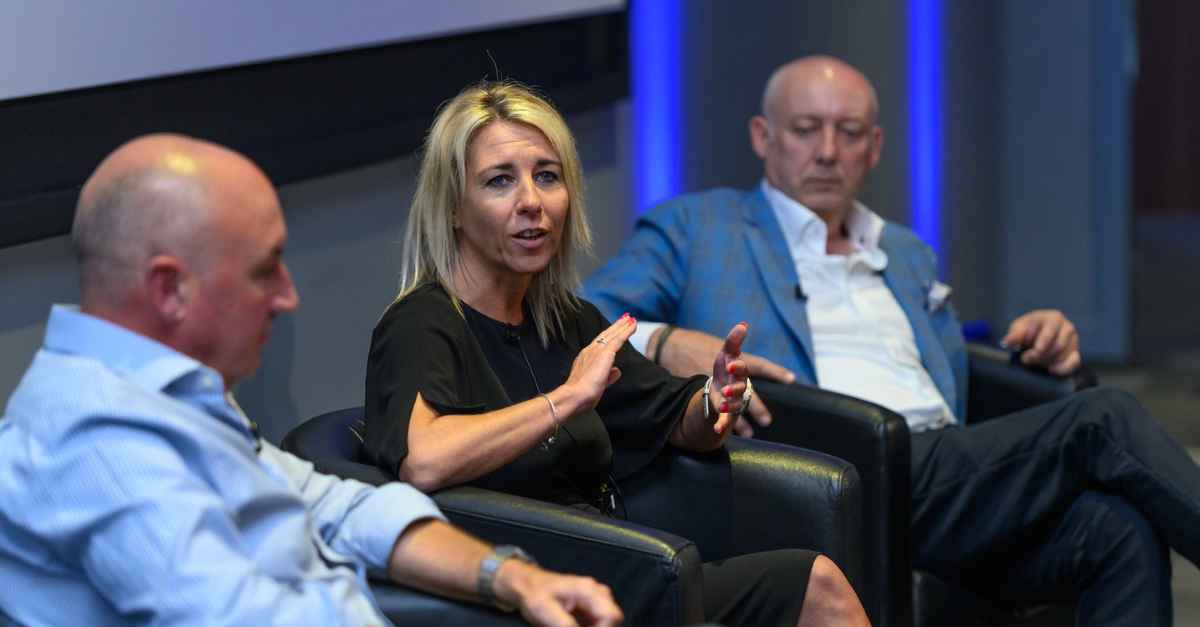In an era of consolidation within the automotive aftermarket repair sector, there are still opportunities for growth for businesses not interested in acquisition.
That was the message of a panel debate, ‘Getting in shape to win more business’, which took place at ARC360’s Future Vehicle Technology themed conference held at the Manufacturing Technology Centre (MTC) in Coventry last month.
Taking part in the conversation were Chris Ashworth, Founder, ILC; Dawn Marsden, Head of Claims, Supplier Management and Engineering Services, esure; and Robert Snook, CEO, Business Success Global, who all shared their insights into how bodyshops can continue to thrive going forward.
Resource
Robert said that increasing profitability did not have to be about a broader footprint, but making more of what it already in place.
He said, “Business growth is something we get suckered into and we think to achieve it we have to get bigger. But there is growth around what you do now and you should look at that first. It’s around vision, intent, and culture. They are the sources of the revenue stream and that is where growth and tomorrow’s profit will come from.”
To achieve this, he urged businesses to focus on three things, capability, functionality and capacity.
Without the capability to action a plan, it is doomed to failure. Businesses also need to consider the type of work they do and where they can improve to become ‘world beaters’, while capacity, Robert added, was not about doing more work but ensuring you are gaining the most profit from the work you already do.
He explained, “All work streams are available, you just have to decide which one to target. You need to know who your customer is and, more importantly, who your customer is not. If you target a customer who your business is not set up to serve you will always play second fiddle, so stopping is more important than starting. Don’t just do more work. Understand what you need to stop doing so you can focus more energy on what you can be the best at.”
Efficiency
Meanwhile, Dawn said that the first step to growing profitability is removing wastage and inefficiency from processes. That involves greater collaboration to ensure there is no duplications of work.
Selecting partners who are aligned to your goals is therefore critical. For esure, that is digitalisation.
Dawn said, “We want a repair partner who wants to grow their business, but in line with our own goals. We want to be a leading digital insurer. Repairers are delivering our customer service so if they can’t interact with us and our customer in the way we want it’s not going to work.
“Our reputation depends on them, so goals need to be aligned when selecting a partner. And, of course, we need to know they are sustainable and will still be there in five years.”
Chris agreed that when it comes to achieving growth, repairers need to be astute in which work providers they select as partners. He said that ultimately sales is the key to growth and the work provider will act as the repairer’s sales team, so they need to ensure they are working for networks that will bring in volume.
He said, “If you work for a network, pay attention to the contract. Take more time to understand who you are working for and to really understand the profitability of that account. Pick networks that are going to be winners because they will be your sales team.”
Technology
One of the most critical aspects of a developing a successful partnership in today’s marketplace is technology. Dawn explained that alongside digital capability, esure would seek repair partners able to meet their needs around EVs, while Chris revealed that some dealerships in Germany who still have attached bodyshops are getting 22% of their work via manufacturer apps.
However, he urged the industry to work together to deliver more integration and connectivity so repairers are not asked to operate different systems for each work provider.
He said, “For repairers wanting to work with networks, technological capability is critical. But the biggest challenge they have is being asked to do things seven different ways. As an industry we need to find a common denominator, so technology is not a competitive advantage or disadvantage.”
Robert agreed. He said the temptation for bodyshops is to invest in new technology simply because it is there without fully understanding how it will deliver a return on investment.
“We’re in a digital world and need to be digital,” he said, “but you have to be selective about what you want and why you need it. Don’t be suckered into buying technology just because it’s new; first establish what problem is it going to solve and for whom?”
Future
But greater technology, he continued, is no guarantee of growth. Far more important is the human element of the business.
He encouraged business owners to look at themselves first and assess their own roles, arguing that if they are leading the business well their people will follow.
He said, “People will grow the business for leaders that inspire them. If you want to grow as an organisation, grow the people and they will grow the business for you. And provide them with context, so they understand why they are doing something. You need to provide them with a vision, and then commit to it fully.”
The session concluded with each panellist providing their top three tips for growth:
Chris:
- Build a good profitability calculator so you can make the right decisions about who you work with
- Be curious, ask a partner what their plans are
- Study the form so you pick the right partner
Dawn:
- Invest in digital
- Invest in people
- Build trust with partners
Robert:
- Create a vision so you know the end goal
- Develop a robust and pressure-tested strategy
- Commit to it fully
ARC360’s Future Vehicle Technology conference was sponsored by Activate Group, Thatcham Research and Stellantis, and supported by Corporate Partners: BASF, CAPS, Copart, Entegral, Enterprise, Mirka, Nationwide Vehicle Assistance, S&G Response, Solera Audatex; along with Partners: e2e, Gemini ARC, Repairify and Prasco.
















